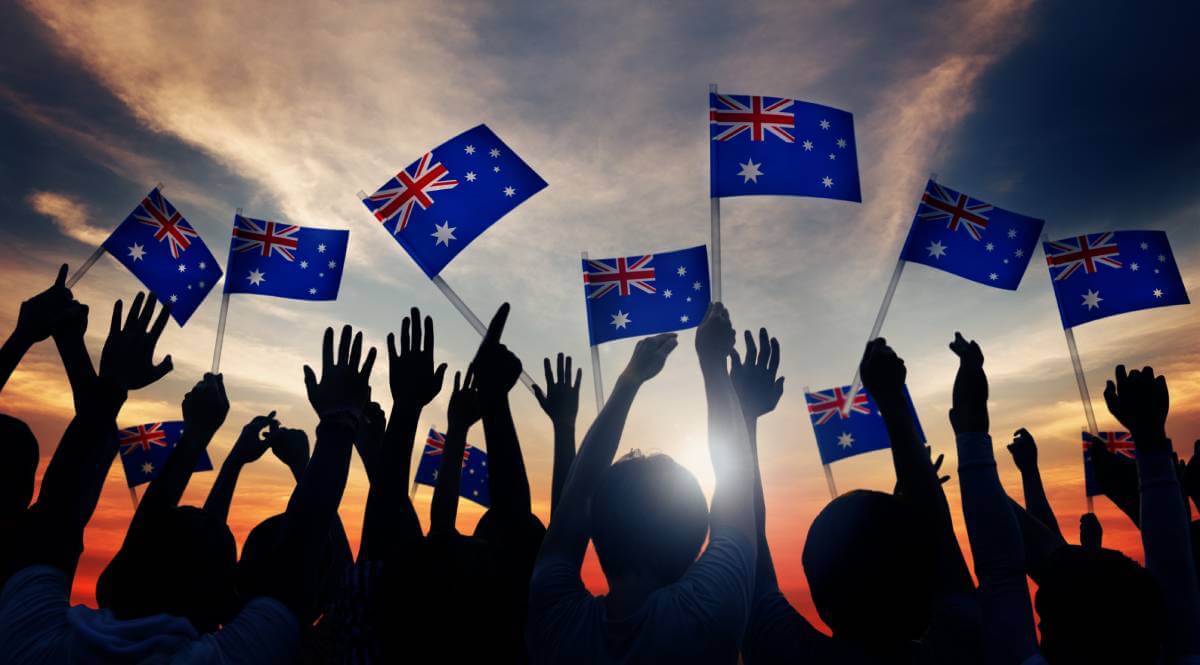Australians will decide the fate of a constitutionally enshrined Aboriginal and Torres Strait Islander Voice to Parliament on 14 October.
Prime Minister Anthony Albanese officially set the date during a visit to Adelaide, sending the nation to the polls for the first referendum in more than two decades.
“For Aboriginal and Torres Strait Islander people, this has been a marathon,” he said.
“For all of us, it is now a sprint and across the finish line is a more unified, more reconciled Australia, with greater opportunities for all.”
The proposed Voice would have the power to advise the parliament and federal government on matters that affect Aboriginal and Torres Strait Islander people.
It will need both a majority of the national vote and a majority of states – a so-called double majority – supporting the referendum for the Voice to be enshrined in the constitution.
“The idea for a Voice came from the people and it will be decided by the people,” Mr Albanese said.
“On that day, every Australian will have a once-in-a-generation chance to bring our country together and to change it for the better.”
The last time a federal government held a referendum was in 1999 when the republic vote failed. A referendum has not passed in Australia since 1977.
The Australian Electoral Commission (AEC) estimates the voter roll is at 97.5 per cent of eligible voters, making the referendum likely to be the biggest electoral event in the nation’s history.
Indigenous enrolment has skyrocketed since the end of 2022, up from 84.5 per cent to 94.1 per cent of eligible voters. That increase equates to an extra 60,000 First Nations Australians joining the voter roll.
Youth enrolment has also hit new heights. But the AEC has repeatedly warned that high enrolment doesn’t guarantee high voter turnout.
Australians will be asked to write either Yes or No on their ballot, in line with previous referendums.
“My fellow Australians, what Aboriginal and Torres Strait Islander people want for their children is what you want for yours – staying healthy, doing well at school, finding a job they love, being safe and leading fulfilling lives,” Mr Albanese said.
“That’s what they are asking you to say yes to at this referendum. The same opportunity for their children to make a good life for themselves.
“In the words of the Uluru Statement from the Heart, ‘when we have power over our destiny, our children will flourish’. That’s the change that we as Australians can make happen.”
The question being put to Australians
“A Proposed Law: to alter the Constitution to recognise the First Peoples of Australia by establishing an Aboriginal and Torres Strait Islander Voice. Do you approve this proposed alteration?”
As well as that, it will be put to Australians that the constitution be amended to include a new chapter titled “Recognition of Aboriginal and Torres Strait Islander Peoples”.
The details would be:
In recognition of Aboriginal and Torres Strait Islander peoples as the First Peoples of Australia:
- There shall be a body, to be called the Aboriginal and Torres Strait Islander Voice.
- The Aboriginal and Torres Strait Islander Voice may make representations to the Parliament and the Executive Government of the Commonwealth on matters relating to Aboriginal and Torres Strait Islander peoples.
- The Parliament shall, subject to this Constitution, have power to make laws with respect to matters relating to the Aboriginal and Torres Strait Islander Voice, including its composition, functions, powers and procedures.
 2020 Australian Broadcasting Corporation. All rights reserved.
2020 Australian Broadcasting Corporation. All rights reserved.
ABC Content Disclaimer


I think that most Australians would agree that many Indigenous people, especially in remote and regional areas, are way behind the rest of the country in so many ways. I’m just not convinced that this current “Voice” proposal is the best way to fix that.
In the first place, there is already a Minister for Indigenous Affairs, a member of the Federal Cabinet, the peak decision-making body in the country. Why isn’t she already doing something?
Secondly, the proportion of Indigenous people in the Federal Parliament is higher than the proportion in the general population. Why hasn’t that made a difference already? What difference would it make to have yet another voice?
And thirdly, why should one particular racial group within our community have special access to government, over and above that which is already available to everyone else, through our elected members?
The situation is definitely broken, but this is not the way to fix it.
The 2022 Australian federal election resulted in a record 11 Aboriginal parliamentarians, representing 4.8% of all parliamentarians, which is higher than the Indigenous Australian population of 3.3%.
Surely that is a voice to the Parliament ??
Do we want to beome another US debarcle ?